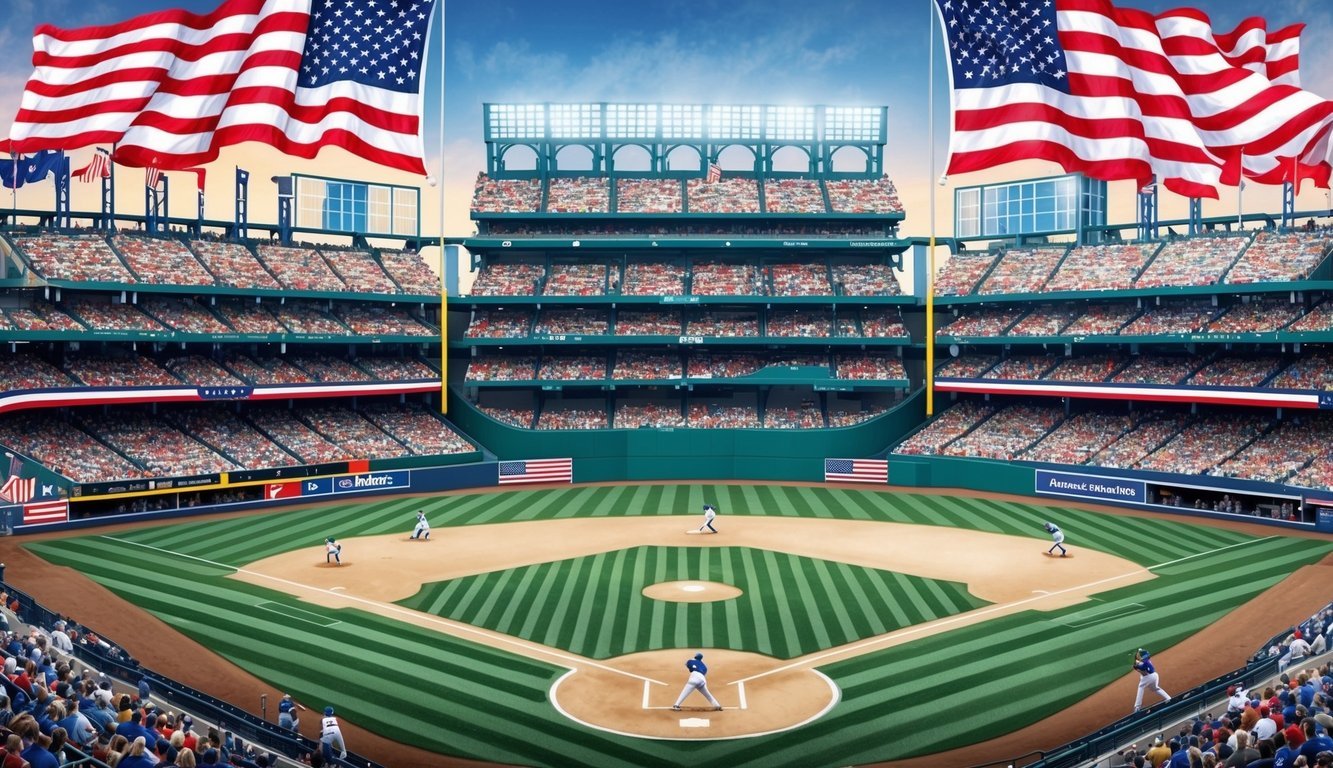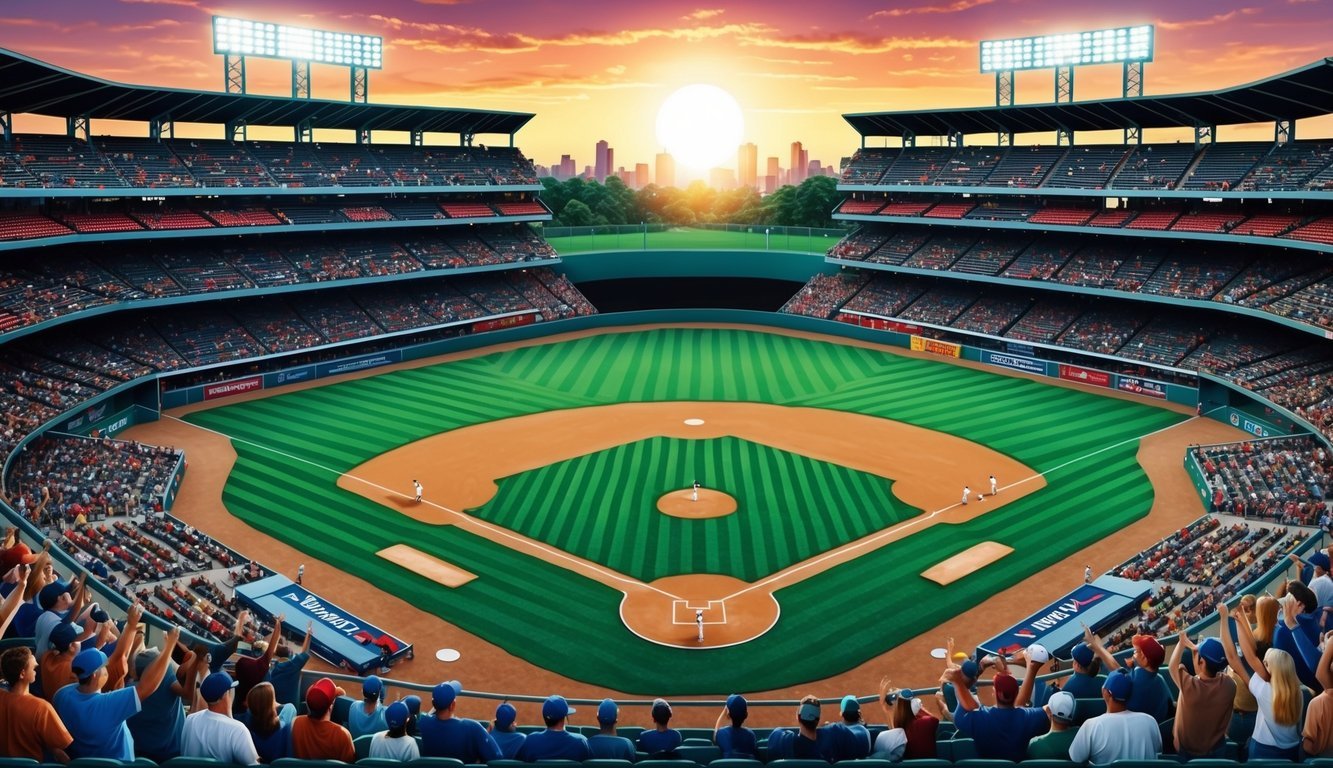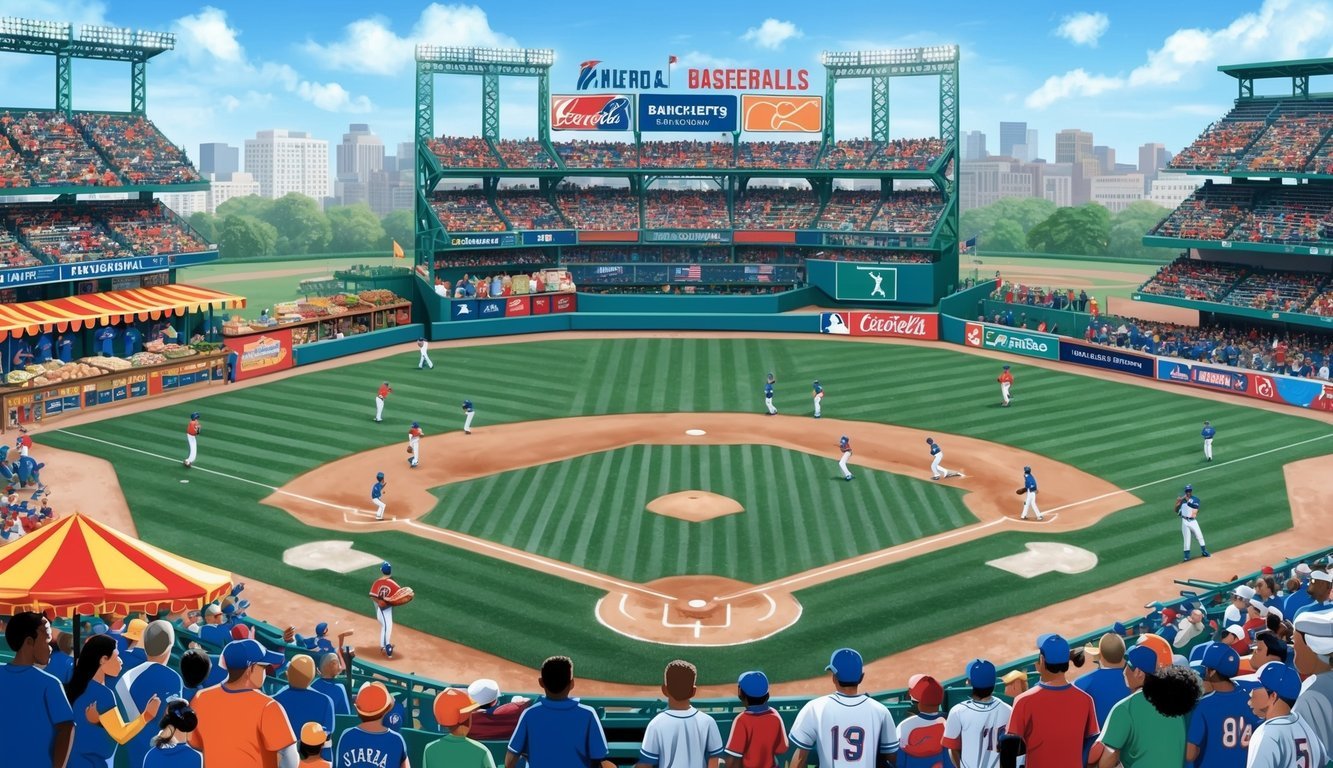Baseball has woven itself into the fabric of American culture, becoming more than just a sport. Since its inception in the 19th century, baseball has shaped language, fostered community bonds, and reflected societal changes across the United States. The game’s influence extends far beyond the diamond, permeating literature, music, film, and everyday conversations.
The rich history of baseball mirrors America’s own journey.
From Jackie Robinson breaking the color barrier to the creation of fantasy leagues, the sport has both reflected and driven social progress.
Baseball stadiums serve as community gathering places, while iconic players become national heroes, inspiring generations of fans.
Baseball’s cultural impact reaches beyond American borders.
In Japan, high school tournaments like Koshien captivate millions, showcasing the sport’s ability to unite people across cultures.
The game’s global appeal has made it a powerful tool for diplomacy and cultural exchange, bridging gaps between nations through a shared love of the sport.
Origins and Evolution of Baseball
Baseball’s journey from humble beginnings to America’s national pastime is a fascinating tale of innovation and cultural significance.
The sport’s development reflects the changing landscape of American society over nearly two centuries.
From its early days in the mid-19th century to the establishment of Major League Baseball, the history of baseball evolution encompasses key moments and figures that have shaped the game, such as the creation of the baseball diamond and the integration of players from diverse backgrounds.
As communities rallied around their local teams, baseball became a symbol of unity and entertainment, transcending regional and cultural divides.
Today, the sport continues to adapt and grow, embracing technology and international talent while remaining deeply rooted in its rich history.
Early Beginnings and 19th Century Roots
Baseball’s earliest ancestor can be traced to 14th-century England with a game called stoolball.
This Easter tradition involved teams, a bat, and a ball, with players defending a target.
As the game spread across England, it evolved into various bat-and-ball games.
These eventually made their way to North America with British colonists.
In the early 19th century, informal games resembling modern baseball became popular in the United States.
The New York Knickerbocker Baseball Club, founded in 1845, played a crucial role in formalizing the rules.
Alexander Cartwright, a member of the club, is often credited with establishing many of baseball’s fundamental rules.
These included the diamond-shaped infield and the concept of foul territory.
The Rise of Major League Baseball and Iconic Players
The late 19th century saw the birth of professional baseball.
The National League formed in 1876, followed by the American League in 1901.
The first World Series in 1903 marked a significant milestone, pitting the champions of both leagues against each other.
Legendary players emerged during this era.
Babe Ruth, known as “The Sultan of Swat,” revolutionized the game with his powerful hitting in the 1920s.
Other iconic figures like Ty Cobb, Honus Wagner, and Walter Johnson captivated fans and helped establish baseball as America’s favorite sport.
Transformation Through the 20th Century
The 20th century brought significant changes to baseball.
The introduction of night games in the 1930s made the sport more accessible to working-class fans.
Integration became a pivotal moment when Jackie Robinson broke the color barrier in 1947.
This paved the way for other talented African American players to join the major leagues.
Television broadcasts in the 1950s expanded baseball’s reach, turning local teams into national icons.
Rule changes, like the introduction of the designated hitter in the American League in 1973, continued to shape the game.
Expansion teams and relocation brought Major League Baseball to new cities, further cementing its status as America’s national pastime.
Cultural Significance and Impact on Society
Baseball has profoundly shaped American culture and society.
Its influence extends far beyond the diamond, touching art, literature, and community bonds.
Baseball as a Reflection of American Society
Baseball mirrors American values and ideals.
The sport embodies concepts like meritocracy, teamwork, and the pursuit of excellence.
It has evolved alongside society, reflecting changes in race relations, gender roles, and economic structures.
Baseball’s integration in 1947 with Jackie Robinson joining the Brooklyn Dodgers was a pivotal moment in the civil rights movement.
This breakthrough helped pave the way for broader social change.
The game’s emphasis on statistics and data analysis reflects America’s love for numbers and quantification.
Fantasy leagues and sabermetrics have further amplified this aspect.
Influence on Art, Literature, and Film
Baseball has inspired countless works of art, literature, and film.
Bernard Malamud’s novel “The Natural” explores themes of talent, ambition, and redemption through baseball.
Films like “Field of Dreams” capture the sport’s nostalgic appeal and its ability to connect generations.
Baseball movies often use the game as a backdrop to explore deeper human emotions and relationships.
Artists have long been drawn to baseball’s visual appeal.
Norman Rockwell’s paintings of the sport are iconic representations of Americana.
Game as a Unifying Force
Baseball serves as a powerful unifying force in communities across America.
Local teams, from Little League to the majors, foster a sense of pride and belonging.
Stadiums act as gathering places where fans from diverse backgrounds come together to cheer for a common cause.
The shared experience of watching a game creates bonds between strangers.
During times of national crisis, baseball has played a healing role.
After 9/11, the sport helped Americans find solace and a return to normalcy.
Baseball’s rhythm and traditions provide a comforting continuity, connecting fans to their personal and collective histories.
Baseball and the American Identity

Baseball has become deeply intertwined with the American identity, shaping values and reflecting societal changes.
The sport embodies key aspects of the American spirit while fostering a sense of unity and pride.
From National Symbol to Global Inspiration
Baseball’s rise as America’s pastime cemented its status as a national symbol.
The sport’s emphasis on individual achievement within a team framework mirrors the American dream.
Baseball terms like “home run” and “stepping up to the plate” have become part of everyday language.
The World Baseball Classic has helped spread the game globally.
American players now inspire fans worldwide, showcasing the sport’s universal appeal.
MLB’s international outreach programs have introduced baseball to new audiences, fostering cultural exchange.
Baseball diplomacy has even played a role in international relations, with exhibition games helping to ease tensions between nations.
Sportsmanship and Values
Baseball emphasizes fair play and respect for the game.
These principles reflect broader American values of integrity and honesty.
The unwritten rules of baseball, such as not showing up opponents, teach sportsmanship from a young age.
Teamwork is central to baseball’s ethos.
Players must work together for success, mirroring the cooperative spirit valued in American society.
The sport also celebrates individual excellence, balancing team goals with personal achievement.
Baseball’s traditions, like the seventh-inning stretch, create shared experiences that bind communities together.
The Role of Diversity and Integration
Jackie Robinson‘s breaking of the color barrier in 1947 was a pivotal moment in baseball and civil rights history.
His courage and skill helped pave the way for racial integration in sports and society at large.
Today, MLB reflects America’s diversity.
Players from various backgrounds compete side by side, showcasing the strength of inclusion.
Latino and Asian players have enriched the game, bringing new styles and cultures to America’s ballparks.
Baseball’s evolution mirrors the ongoing struggle for equality in American society.
The sport continues to address issues of representation and opportunity at all levels.
Memorable Moments and Legendary Figures

Baseball’s rich history is filled with iconic players, groundbreaking events, and moments that have captured the American imagination for generations.
Heroes and Legends of the Diamond
Babe Ruth stands as one of baseball’s most beloved figures.
His larger-than-life personality and incredible hitting prowess made him a national icon.
Ruth’s called shot in the 1932 World Series, where he allegedly pointed to the center field stands before hitting a home run, became an enduring legend.
Hank Aaron’s pursuit of Ruth’s home run record captivated the nation in 1974.
Despite facing racial prejudice, Aaron persevered to become baseball’s all-time home run king, a title he held for decades.
Lou Gehrig’s courage in the face of illness inspired millions.
His “Luckiest Man” speech at Yankee Stadium in 1939 remains one of sports’ most touching moments.
Groundbreaking Events and Turning Points
Jackie Robinson breaking the color barrier in 1947 was a pivotal moment in baseball and American history.
His bravery and skill on the field helped pave the way for integration in sports and society.
World War II significantly impacted baseball, with many players serving in the military.
The All-American Girls Professional Baseball League emerged during this time, showcasing women’s abilities on the diamond.
The Negro Leagues produced numerous talented players who were long denied opportunities in the majors.
The eventual integration of these players enriched the game and challenged societal norms.
Baseball in the American Imagination
Baseball’s timeless appeal has made it a frequent subject in literature and film.
Works like “Field of Dreams” and “The Natural” tap into the sport’s nostalgic and mythic qualities.
The game’s leisurely pace and pastoral settings have inspired countless writers and artists.
Baseball metaphors have become deeply ingrained in American language and culture.
Ballparks like Fenway Park and Wrigley Field serve as living museums, connecting fans to the game’s rich history.
These venues evoke a sense of nostalgia and continuity across generations.
The Cultural Fabric of Baseball

Baseball weaves itself into the very essence of American life, shaping traditions, social interactions, and shared experiences.
It creates a unique tapestry that connects people across generations and backgrounds.
Ballparks and the Fan Experience
Stepping into a baseball stadium is like entering a world of its own.
The sights, sounds, and smells create an unforgettable atmosphere.
Fans bond over hot dogs, peanuts, and crackerjacks while cheering for their favorite teams.
Iconic stadiums like Fenway Park and Wrigley Field have become landmarks, preserving baseball history.
Modern ballparks blend nostalgia with cutting-edge amenities, offering a mix of tradition and innovation.
The seventh-inning stretch unites spectators in a moment of camaraderie.
Singing “Take Me Out to the Ball Game” creates a sense of belonging among thousands of strangers.
Baseball’s Role in Daily Life and Traditions
Baseball permeates everyday conversations and routines.
Phrases like “hitting it out of the park” or “stepping up to the plate” are common in daily language.
Families and friends gather for backyard games, creating lasting memories.
Little League games bring communities together, fostering local pride and friendly competition.
Opening Day marks the unofficial start of spring for many Americans.
The All-Star Game and World Series become national events, captivating millions across the country.
Influence Beyond the Field
Baseball’s impact extends far beyond the diamond.
The sport has played a crucial role in social progress, breaking racial barriers and promoting equality.
Movies, books, and songs celebrate baseball’s place in American culture.
Icons like Babe Ruth and Jackie Robinson have become larger-than-life figures in the national psyche.
The game’s statistics and strategies have influenced fields like data analysis and decision-making.
Fantasy leagues and baseball card collecting have created entire subcultures around the sport.
Baseball diplomacy has even played a role in international relations, bridging cultural gaps between nations.
